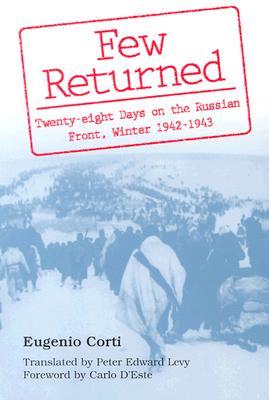“Will no one tell me what she sings? Perhaps the plaintive numbers flow / For old, unhappy far-off things. And Battles long ago.” Wordsworth, perhaps, was prompted by recollections of an age before warfare meant the mechanized destruction of all in its path. Yet war, to paraphrase an American precursor of Zhukov and Guderian, has always been hell. At Agincourt, the French knights were mowed down by the massed projectiles of the English bowmen. Then, as the mounted knights in headlong flight crashed into the oncoming wave of their own men-at-arms at the rear, the heavily armored French, piled on one another in heaps taller than a man, were slaughtered by crushing blows from hammer and sword. The English troops literally waded through a sea of blood. Many of the Frenchmen who had pleaded for quarter were butchered on the spot, and the English even incinerated some of the French wounded who had taken refuge in cottages not far from the battle. The remaining prisoners were held for ransom. It is significant that Henry V, who ordered the slaughter of the prisoners, was forced to employ archers—men who stood outside the medieval system of chivalry—to do a deed that placed at risk the king’s honor as a Christian monarch. Chivalry (however imperfectly observed), buttressed by the Christian faith, served to restrain the dogs of war in the time before ideology had eroded Christianity and technological progress made what John Keegan called the “moving battlefield” a reality. From Agincourt we moved to the Somme, Kursk, and, ultimately, to mass terror and Hiroshima. In the modern era, warfare means entire populations engaged in a dehumanizing clash of opposed barbarians.
Eugenio Corti’s moving memoir is a chronicle of a fateful retreat become a panicked rout in the frozen wastes of the Russian front at Stalingrad. Corti uses his considerable literary’ talents—this, his first book, was originally published in postwar Italy, before the author became an accomplished novelist and essayist—to convey to the reader the experience of a sensitive man who has seen his fellows degraded below the image of God and who has himself felt the elemental urge of the beast in his breast. Derived from notes Corti made at the time, the book reveals the thoughts and emotions of one of these atoms of suffering humanity. In Corti’s account, the battlefield—its storm of steel sweeping over and leveling whole cities and villages, reducing the dead and the living to beings “that had lost all human form” and every sign of humanity —amounts to a preview of Hell, of man cut off completely from God and “set increasingly against Him.”
In this manmade hell, the mechanical inhumanity of the Germans, who dispassionately rape, loot, and murder, and the survivalist savagery of the Russians, who show no mercy even to their own, are juxtaposed with the moral failure of the Italians, who abandoned their wounded comrades to die on the interminable steppe, “obedient by now to a single animal instinct: self preservation.” As a wounded man begs for help, Corti confesses his own failure to resist the ferocity of cruel circumstance: “Within me,” he wrote, “a coldness was forming no less merciless than the cold surrounding me. My eyes followed the poor young wretch as he limped away again; in my soul I felt a useless torment.” Russian, German, and Italian become indistinguishable from one another: “Near the end of the village were numerous dead Russians. One was wearing an Italian great coat.” German, Italian, and Russian are united in Corti’s narrative by the icy flames of the battlefield: “Little by little, I was beginning to feel that I was no longer a distinct unit, with my own identity—no, I was . . . a minute part of endless human pain and sorrow.”
Ultimately Corti’s passage through hell is a baptism, convincing him of the “possibility of salvation.” As Corti reveals, the love of God that inspires the simplest act of kindness by men reaches, as Dostoyevsky contended in his parable of the onion in The Brothers Karamazov, even to the depths of Hell. So many, to paraphrase the great Russian novelist, even as they have sinned, gave an onion and redeemed a fallen nature. The Russian peasants with “their compassion for any suffering being,” the hardened Italian veteran who refuses to abandon a wounded comrade, Corti’s friend Zanotti who, despite “his youth rebelling against the prospect of death,” volunteers for a deadly assignment, taking the place of an exhausted countryman — all, like the snow “which seemed to be forcing itself . . . to push back” against the seemingly “impenetrable darkness” of the hellish vault of the battlefield, resisted the night. In this way, Corti came to believe, “God reclaims the suffering of men, and above all that of innocent men—crucified as Christ was crucified.” Their suffering was “in no way wasted.”
In Corti’s war, the mechanized horrors of battle and the conflict’s epic scale came to represent for the then 21-year-old artillery officer the whole of human experience: of Eden (prewar Italy) and of the Fall, of the possibility of atonement and redemption, and of grace through the self-sacrifice of innocents. Corti himself was saved—by God through his mother’s prayers, as he came to believe—for a purpose. “I offer these pages,” he writes in the book’s dedication, “through my mother’s hands, to the Madonna of my people, the Madonna of the Wood. May they be above all a prayer for those who shared those days with me, who fought and suffered with me, who hoped so desperately with me, and in the end remained lifeless on the interminable roads of the steppe.” As an act of atonement then, before God and his fallen comrades—and, especially, for those who refused to become denizens of the modern hell—Corti offers this powerful testament.
[Few Returned: Twenty-Eight Days on the Russian Front, Winter 1942-1943, by Eugenio Corti, Translated by Peter Edward Levy (Columbia: University of Missouri Press) 251 pp., $19.95]

Leave a Reply